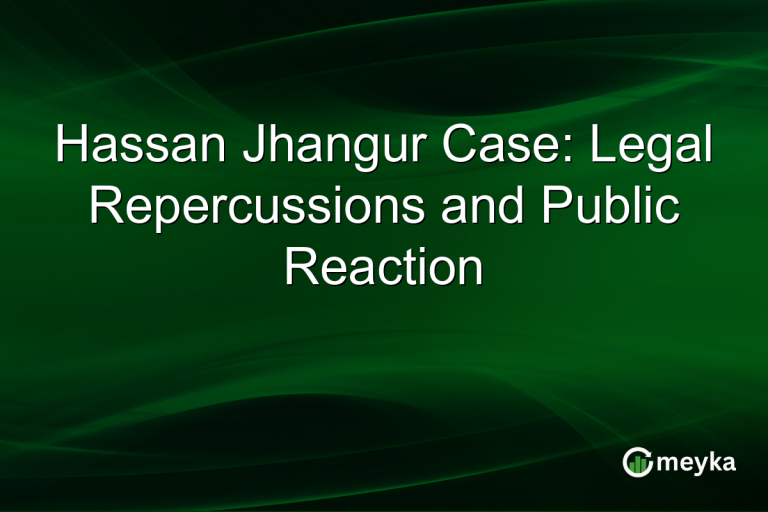Understanding the Impact of Legal Decisions in France: Lessons from D.
The French legal system has recently been thrust into the spotlight following the high-profile case of Dahbia Benkired. Convicted for the brutal murder of Lola Daviet, Benkired’s case has reignited discussions about the efficacy of French laws, particularly in dealing with severe crimes. This decision not only challenges current immigration enforcement in France but also reflects broader societal concerns about security.
The French Legal System’s Response
In dealing with high-profile criminal cases like that of Dahbia Benkired, the French legal system showcases its complexity. Benkired’s life sentence underscores France’s commitment to serious legal consequences in extreme cases. The system aims to balance justice with fairness, ensuring that due process is observed. Read more about this case.
This case also triggers debates about the judiciary’s effectiveness in deterring crime and the potential need for reform. The public and officials alike question whether current laws adequately protect citizens and how these processes might evolve to address new challenges.
Implications for Immigration Policies
Benkired’s case has heightened scrutiny on the French immigration enforcement system. France, like many European countries, grapples with balancing humanitarian obligations and national security. This incident has spurred calls for stricter immigration controls and better enforcement of existing laws.
French policymakers are now pressured to reassess regulations, especially around monitoring immigrants involved in criminal activities. This case prompts a reevaluation of policies to prevent similar incidents, ensuring public safety while maintaining France’s core values of liberty and fraternity.
Public Sentiment and Legal Reform
The intersection of high-profile criminal cases and public opinion often drives change in legal frameworks. The emotions stirred by Daviet’s tragic death have led to widespread public outcry, prompting demands for legal reform. Citizens are increasingly vocal about their concerns regarding safety and justice.
This feedback loop between public sentiment and legislative action demonstrates the dynamic nature of the French legal system. Reforms may include tougher penalties or streamlined legal procedures, aiming to bolster public confidence and enhance security.
Final Thoughts
The Dahbia Benkired case serves as a crucial learning point for the French legal system. It reveals the challenges of balancing justice with the demands of public safety and immigration control. As France reassesses its legal frameworks, this situation underscores the importance of adapting to societal changes while upholding justice.
The case also highlights the role of public opinion in shaping legal policy, as citizens seek assurance that the system can effectively deter and punish severe crimes. Moving forward, France’s approach to legal reform will be critical, potentially setting a precedent for other nations facing similar issues.
FAQs
In the French legal system, a life sentence typically means a minimum incarceration of 18 to 22 years before eligibility for parole, but certain crimes can lead to longer sentences if deemed necessary.
The case has intensified calls for stricter immigration enforcement in France, focusing on better monitoring of immigrants linked to criminal activities, potentially triggering policy reform.
High-profile cases influence public opinion and can prompt legal reforms, as they highlight the gaps and strengths in the legal system, affecting policy direction and enforcement.
Disclaimer:
This is for information only, not financial advice. Always do your research.






